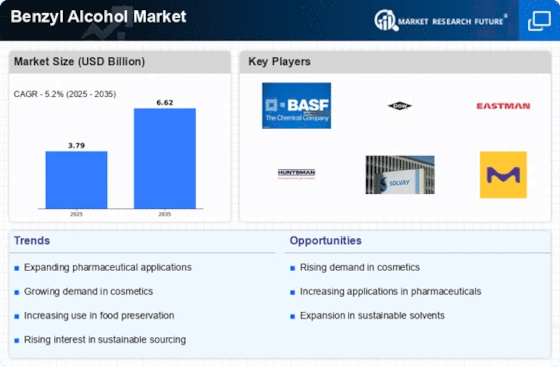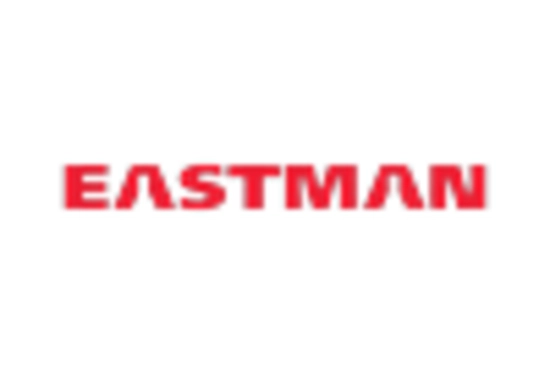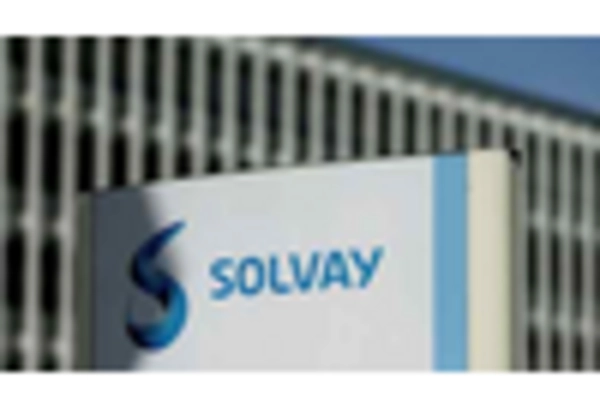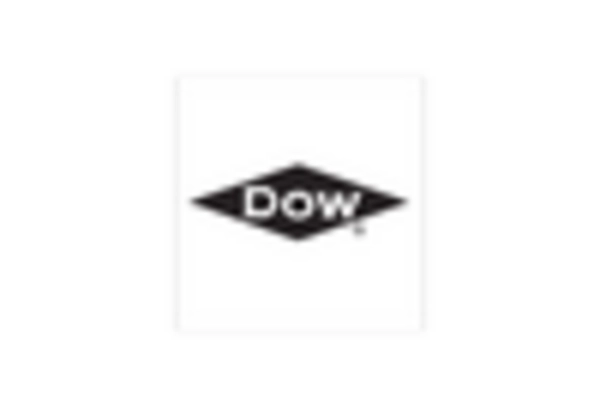Market Trends
Key Emerging Trends in the Benzyl Alcohol Market
The benzyl alcohol market is experiencing notable trends influenced by various factors affecting both supply and demand dynamics. One significant trend is the increasing demand for benzyl alcohol in the pharmaceutical and personal care industries. Benzyl alcohol is widely used as a solvent, preservative, and fragrance ingredient in pharmaceutical formulations, cosmetics, and personal care products. Its versatile properties make it suitable for a variety of applications, including topical medications, skincare products, and fragrances. This trend is driven by growing consumer demand for safe and effective healthcare and beauty products, as well as increasing emphasis on product quality and safety standards in these industries.
Another prominent trend in the benzyl alcohol market is the expanding applications in industrial and chemical sectors. Benzyl alcohol serves as a key intermediate in the production of various chemicals and specialty compounds used in industries such as coatings, paints, adhesives, and flavors. Its role as a solvent and chemical precursor makes it indispensable in the synthesis of polymers, resins, and specialty chemicals. This trend is driven by increasing demand for benzyl alcohol as a raw material for manufacturing processes, as well as the versatility and cost-effectiveness of the compound compared to alternative solvents and intermediates.
Furthermore, the market is witnessing growing interest in benzyl alcohol as a green solvent and eco-friendly alternative to conventional solvents. With increasing awareness of environmental sustainability and regulatory pressures to reduce emissions and hazardous waste, there is a growing demand for solvents that are safer, more sustainable, and less toxic. Benzyl alcohol's low toxicity, biodegradability, and low environmental impact make it an attractive option for solvent-based applications in various industries, including coatings, cleaning products, and specialty chemicals. This trend is driving research and development efforts to improve the sustainability and performance of benzyl alcohol-based formulations and processes.
The benzyl alcohol market is also influenced by regulatory factors and sustainability initiatives impacting production and supply chains. Regulations governing the use and handling of benzyl alcohol, as well as restrictions on emissions and waste disposal, can affect market dynamics and supply chain resilience. Additionally, sustainability initiatives and corporate responsibility goals are driving demand for greener and more environmentally friendly production methods and sourcing practices. This trend is prompting manufacturers to invest in sustainable sourcing, green chemistry, and process optimization to reduce the environmental footprint of benzyl alcohol production and distribution.
Moreover, the market is experiencing increased competition and market consolidation among key players, leading to strategic partnerships, mergers, and acquisitions to strengthen market positions and expand product portfolios. As the industry becomes more consolidated, companies are focusing on innovation, efficiency, and market expansion to maintain competitiveness and drive growth. This trend is driving investments in research and development, as well as market expansion strategies to tap into emerging markets and untapped opportunities in the benzyl alcohol market.
On the supply side, the benzyl alcohol market is influenced by factors such as raw material availability, production capacity, and technological advancements. Fluctuations in the availability and pricing of raw materials such as benzyl chloride and toluene, which are used in benzyl alcohol production, can impact market dynamics and pricing. Additionally, advancements in production technologies and process optimization are improving the efficiency and cost-effectiveness of benzyl alcohol production, driving supply growth and market competitiveness.



















Leave a Comment